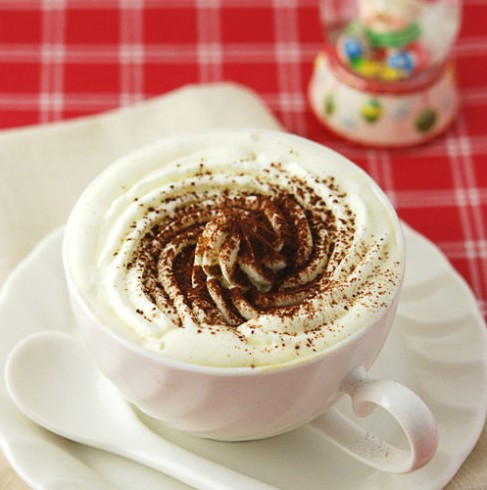Technical terms for coffee-words for smelling and tasting

Pleasant sour taste, sour (Acidity, Acidy) uncomfortable sour taste (Sour)
The nose is not bright, not only can not smell the fragrance, even the sense of taste is not as sensitive as usual. Think about it, whenever you catch a cold with a stuffy nose, do you feel more tasteless to eat? Usually sour food smells sour, and the taste we feel is actually a complex interaction between taste and smell. It seems not easy to separate taste from smell. No wonder the term "taste" itself includes the taste of smell and taste.
We often have the opportunity to taste all kinds of sour taste, such as lemon, apple, wine, black vinegar ┅┅. There is no doubt that sour taste is the delicacy of these foods: similarly, the wonderful sour taste is the reason why some coffees are highly valued. In fact, all coffee tastes sour because raw beans contain a lot of chloric acid, which turns into aromatic or irritating acids during baking, but these acids burn off at high temperatures, making the deeper the beans are less sour.
It's not difficult to tell a good acid from a bad acid, just as you can tell the difference between fruit acid and hydrochloric acid. If the brewing temperature is too low, or excessive extraction, the tannin and nicotinic acid in the coffee will enter your mouth, irritating the underside of the tongue, accompanied by a pungent smell, making you feel uncomfortable. This is different from delicious acid, which stimulates the edges of both sides of the tongue and inspires adjectives such as "thin" and "sharp", while soft acid feels evenly near the middle part of the tongue in addition to both sides of the tongue. make some soft acid close to salty taste (such as tomato and plum acid) or soda feeling. Because the special sour taste often overshadows the texture and becomes the main body of the taste, some people use the term "clean" and "Bell-like as clear as a bell" to describe coffee with outstanding sour taste.
The sour flavor brings more connotation to the sour taste. Some slightly stimulating fragrances can refresh people and make people notice at once, giving people a feeling of "bright"; on the contrary, some fragrances give people a dark feeling. For example, ginger, soda, lemon, apple, orange, tomato, ripe banana, their brightness is getting lower and lower in order.
The reason why most people don't like the sour taste of coffee is probably that they are not used to sour and bitter together. Fortunately, sour taste can be suppressed by sweetness, such as lemon juice with sugar. If you think coffee is too sour, you can choose to add sugar. Unlike milk, sugar not only does not affect other mellow taste, but also can mention the sweetness of coffee.
● Clean (Clean)
Coffee is not rustic, not wild, and has no flaws and dazzling features.
● balance (Balance)
It has features that are complex and interesting enough, but none of them are particularly prominent.
● texture, taste (Body, Mouthfeel)
Texture refers to the thick and slippery touch of coffee in the mouth, which is proportional to the amount of colloid suspension in the coffee. Since texture is felt throughout the mouth, we use "rich" to describe thick coffee and vice versa as "thin". Thin coffee tastes like wine or lemon water, while rich coffee tastes like full-fat fresh milk or syrup.
● complexity (Complexity)
Refers to the different levels of characteristics that coexist in the same cup of coffee, with high complexity, indicating that there are many kinds of sensory stimuli that can be felt; it should be noted that these feelings include the afterrhyme and are not necessarily limited to the present feeling when drinking.
● depth (Depth)
This is a more subjective adjective, which refers to the resonance and appeal beyond sensory stimulation, which may be caused by some meticulous feelings or complex interactions between different senses.
● bitterness (Bitter)
This is a characteristic of deep baked beans, which, like sour taste, is not necessarily uncomfortable, but the sensation of the whole mouth and throat, not just the tongue. Generally speaking, friends who drink American coffee or Saifeng coffee may use "strong" to describe this feature.
● Sweet (Sweet)
There are two meanings. The first is the stimulation of sugar on the tip of the tongue, that is, the so-called sweet taste; the other means that between deep city baking and Espresso baking, some astringent substances and rich glycolic taste are reminiscent of syrup; this kind of tongue tip does not have to react.
● smoothing (Smooth)
It refers to a sweet Espresso that is weak in sour and bitter taste, with a little sugar and can be drunk comfortably without milk.
Flavor [flavor]
It is the overall impression of aroma, acidity and mellowness, which can be used to describe the overall feeling of contrasting coffee.
Acidity [acidity]
It is the sour and strong quality of all the coffee grown on the plateau. Unlike bitterness or sour (sour), it has nothing to do with pH, but a refreshing and lively quality that promotes coffee to exert its functions of boosting the mind and clearing the taste.
Body [alcohol]
After drinking the coffee after conditioning, the taste of the coffee is left on the tongue. The change of mellowness can be as light as water to light, medium, high, fat, and even some Indonesian coffee is as thick as syrup.
Aroma [smell]
Aroma refers to the smell and aroma of coffee after conditioning. Bouquet is a less commonly used word that specifically refers to the taste of ground coffee powder. Aroma is usually specific and comprehensive. The words used to describe Aroma include: caramel, carbon roasted, chocolate, fruit, grass, malt, rich, rich, spicy and so on.
Bitter [bitter]
Bitterness is a basic sense of taste, and the sensory area is distributed at the base of the tongue. The bitterness of dark baking is deliberately created, but the most common cause of bitterness is too much coffee powder and too little water. Bitterness is not a consent word for sour.
Bland [light]
Coffee grown in the lowlands is usually quite light and tasteless. Coffee with insufficient powdered coffee and too much water will have the same light effect.
Briny [salty]
After brewing, if the coffee is overheated, it will produce a salty taste. The coffee in some coffee shops has this taste.
Earthy [aroma of soil]
Commonly used to describe Indonesian coffee with a spicy and earthy flavor. But the smell of mud does not refer to the smell of dirt on coffee beans. Some commercial coffees are mixed with cheap coffee, and the muddy smell may become dirty, apparently due to the dry, rough processing technology of laying coffee beans on the ground.
Exotic [uniqueness]
Describe coffee with its unique aroma and special flavor, such as flowers, fruits and spices. Coffee from East Africa and Indonesia usually has this property.
Mellow [aromatic alcohol]
It is an adjective for coffee with low to medium acidity and good balance.
Mild [mild]
It means that some kind of coffee has a harmonious and delicate flavor. Latin American premium coffee grown on the plateau is usually described as mild in texture. In addition, it is also a coffee term used to refer to all plateau coffee except those produced in Brazil.
Soft [soft]
Describe low-acidity coffee like Indonesian coffee; it can also be described as mellow or sweet.
Sour [acid]
A sense of taste in which the sensory area is mainly located at the back of the tongue and is characteristic of light-colored roasted coffee.
Spicy [Xiangxin]
Of a flavor or smell reminiscent of a particular spice. Some Indonesian plateau coffee (especially old coffee) contains the sweet smell of cardamom.
Strong [strong]
Technically, it describes the advantages and disadvantages of various tastes, or the relative ratio of coffee to water in a particular conditioned product. In terms of popular usage, strong describes the strong flavor of dark roasted coffee. In addition, it also misleads people into the illusion that it contains a lot of caffeine. In fact, canned light coffee is high in caffeine because it contains more decaf.
Sweet [sweet]
It is a widely used adjective, which is almost like fruit in nature and has something to do with the taste of wine. Coffee grown on the Costa Rican plateau usually has a pungent flavor.
Wild [wild]
Describe coffee as having extreme taste characteristics. If ordinary people cannot accept it, they will call it eccentric, but it may also be an attractive feature, depending on personal preference.
Winy [wine flavor]
Describe a charming flavor reminiscent of wine. Fruit-like acidity and smooth mellowness create a special contrast flavor.
Important Notice :
前街咖啡 FrontStreet Coffee has moved to new addredd:
FrontStreet Coffee Address: 315,Donghua East Road,GuangZhou
Tel:020 38364473
- Prev

Coffee tasting method Taste belongs to a complex feeling
Taste belongs to a complex feeling. When learning to taste, we must first understand the factors of taste composition, so that we can disassemble and analyze each factor when tasting, and then we can detect more delicate taste, that is, detailed changes. Taste can be divided into three categories: odor (aroma), taste and taste. In the oral cavity, it can be roughly divided into upper odor (aroma) and middle taste.
- Next

The standard of coffee taste describes the type of dry aroma.
1. Olfaction (sense of smell): each kind of coffee has a unique smell (bouquet), which distinguishes coffee from different producing areas or species. A, Dry aroma/ fragrance- dry aroma; coffee grinding before brewing coffee dry powder aroma B, Cup aroma/ aroma- wet aroma; coffee brewing, the aroma emitted from the liquid surface C,
Related
- Detailed explanation of Jadeite planting Land in Panamanian Jadeite Manor introduction to the grading system of Jadeite competitive bidding, Red bid, Green bid and Rose Summer
- Story of Coffee planting in Brenka region of Costa Rica Stonehenge Manor anaerobic heavy honey treatment of flavor mouth
- What's on the barrel of Blue Mountain Coffee beans?
- Can American coffee also pull flowers? How to use hot American style to pull out a good-looking pattern?
- Can you make a cold extract with coffee beans? What is the right proportion for cold-extracted coffee formula?
- Indonesian PWN Gold Mandrine Coffee Origin Features Flavor How to Chong? Mandolin coffee is American.
- A brief introduction to the flavor characteristics of Brazilian yellow bourbon coffee beans
- What is the effect of different water quality on the flavor of cold-extracted coffee? What kind of water is best for brewing coffee?
- Why do you think of Rose Summer whenever you mention Panamanian coffee?
- Introduction to the characteristics of authentic blue mountain coffee bean producing areas? What is the CIB Coffee Authority in Jamaica?

